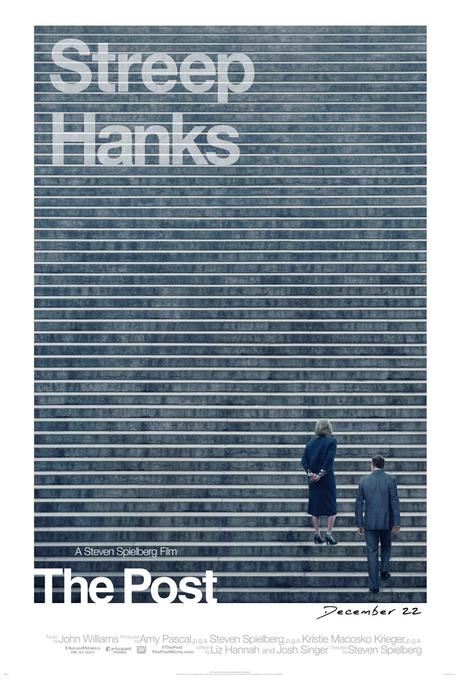 There’s a saying that history is written by the victors. Of course, that doesn’t mean that those who write it are always remembered. In Steven Spielberg’s “The Post,” we meet one of these less remembered figures.
There’s a saying that history is written by the victors. Of course, that doesn’t mean that those who write it are always remembered. In Steven Spielberg’s “The Post,” we meet one of these less remembered figures.
The publishing of the Pentagon Papers by the New York Times and Washington Post was a defining moment in the history of the free press. The Supreme Court case that followed set a precedent for protecting the press from retribution from the powers that be, even if they hold the top seat in the country.
At the heart of powerful moment in history was the first female publisher of a major American newspaper, Kay Graham. A woman who was certainly victorious, who definitely helped to write history, and who many have never heard of.“The Post,” explores the power dynamic beyond the simplicity of the press vs. politicians. While the Pentagon Papers play a part, they are not the meat of the story. As the title suggest, The Post, and the woman at the helm are what drive this story.
At the time, 1971, The Washington Post is a small, local paper trying to stay afloat. Kay Graham (Meryl Streep) is looking to save her father’s company by taking The Post public. With a woman in charge, needless to say, it’s a hard sell in a male-dominated industry. Simultaneously, The Post is trying to compete with The New York Times, a risky and challenging task that conflicts with the company’s new position as a public company.
I won’t bore you with a history lesson, but let’s just say The Post finds itself in a sticky position stuck between President Nixon, the Supreme Court, and their new board. SPOILER ALERT: The Post wins.
At it’s best, “The Post,” is a master class in acting. Meryl Streep as Kay Graham and Tom Hanks as the brash but loveable Ben Bradlee are as wonderful as you’d imagine, and Spielberg’s talent pool runs deep. Bradley Whitford, Sarah Paulson, and Michael Stuhlbarg are just a few of the other noteworthy performances. Outside of acting, the story, based on actual events, is painfully relevant both regarding the press and the double standard faced by women in power.
At it’s worst, the film gets too heavy-handed with its message. The sea of inspired women waiting to greet Graham after she leaves the Supreme Court is cloyingly sweet, and about as subtle as a #TimesUp poster to the face. Thankfully, there are quiet, less forced moments that deliver the message perfectly.
One such moment comes right before Graham decides to publish the first round of the Pentagon Papers. While watching over her sleeping granddaughter, Graham speaks with her daughter about first taking over The Post. Surrounded by two other generations of women, for the first time she sees her place of power not as something that she needs to apologize for, but a position she is worthy of and deserves. We see a woman who has second guessed every decision up until this point step into her power in a beautiful moment of clarity.
Shortly after, Graham makes the decision, without her usual hesitation, to publish the Pentagon Papers and risk the possibly devastating consequences for The Post and herself.
It’s story telling at it’s best. It’s pure inspiration, and it makes any small shortcomings worth it.
…just for fun:
Advertisements &b; &b;
